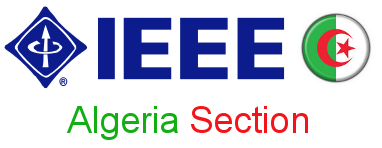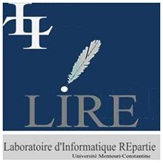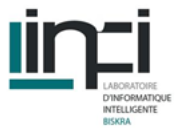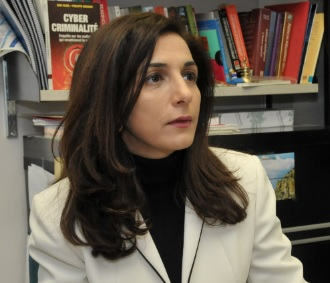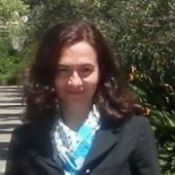Keynotes
|
|
"Privacy and Security issues in Artificial Intelligence"
Abstract:When people use online platforms, especially social media, they are exposed to various risks regarding their privacy ans security. Indeed, there exist various situations and factors that lead users to disclose personal and private information. This self-disclosure can happen either deliberately, when they are aware that they are effectively sharing personal information, or unintentionally, when they are being manipulated or even tracked by third parties. Today it has become crucial to make online users aware of the common techniques that deceivers can use, and show them the unforeseen consequences that can result from such disclosure. This talk is about the role Artificial Intelligence and its benefits and risks. After presenting the positive side of AI, I will focus on online deception and highlight some of my recent research efforts that aim to detect users vulnerable to manipulation and how to raise their awareness about privacy and cybersecurity in different contexts. Biography:Esma Aïmeur is Professor at the Department of Computer Science and Operational Research at the University of Montréal. She obtained a PhD in Computer Science (Artificial Intelligence) from the University of Paris 6 (France). She works on usable privacy and security, applying artificial intelligence techniques to manage personal data in e-Learning, e-commerce and medicine. Her most recent research focuses on the ethics of artificial intelligence, social networks, security awareness, recommender systems, and privacy preserving (identity theft, geolocation, information disclosure behavior, profile re-identification, etc.). Professeur Aïmeur was responsible for the Computer Science component of the Master's degree in e-commerce, a joint program with the Faculty of Law and HEC (the Business School at the University of Montreal) between 2003 and 2013. As part of this master's degree, she organized an annual seminar on the Computer privacy for the past decade. In addition, she was Program Chair of the 24 World Wide Web Conference 2016 workshops, one of which was co-hosted by Tim Berners-Lee, the inventor of the Web. In 2017, she co-chaired the 7th International MCETECH Conference on e-Technologies. She gave several talks and tutorials on privacy, artificial intelligence and online deception especially at Carnegie Mellon University in December 2019. Finally, in 2020, she is co-chairing the "Privacy Fairness and Transparency" trackof the ACM UMAP conference (User Modeling, Adaptation and Personalization). She is currently co-editor of the International Journal of Privacy and Health Information Management, associate editor for IEEE Transactions on Big Data and for the new journal Artificial Intelligence for Human Learning and Behavior Change. |
|
|
"Multi-agent Coordination Models and Applications"
Abstract:Les nouveaux Systèmes d'Information (SI) et plusieurs domaines d'application émergents (Imagerie médicale, Internet des objets, l'intelligence ambiante, le cloud, les réseaux sociaux...) sont souvent basés sur un ensemble d'entités coopératives et distribuées qui génèrent un grand volume de données et/ou qui gèrent un grand nombre de ressources hétérogènes. La gestion de ces grands volumes de données et ces ensembles ouverts de ressources est un problème complexe. Les concepts de base des systèmes multi-agents (proactivité, auto-organisation, adaptation) sont très utiles pour modéliser et contrôler ces systèmes complexes. L'objectif principal des nombreux travaux sur les systèmes multi-agents est de proposer des modèles multi-agents pour modéliser des systèmes hétérogènes, complexes, non linéaires et évolutifs. Ces modèles montrent une intelligence et des capacités qui sont supérieures à celles des agents qui les composent. Elles émergent de la coexistence et de la coopération d'agents plus ou moins autonomes. Néanmoins les modèles multi-agents existants ne satisfont que de manière partielle les besoins des applications émergentes. Ces applications complexes comportent un très grand nombre d'entités et elles ne peuvent pas être contrôlées par un observateur externe~; les phénomènes émergents doivent être détectés par le système lui-même. Le système doit en effet avoir la capacité de s'auto-observer, il doit être auto-adaptatif. Le but de cet exposé est de présenter les principaux modèles de coordination multi-agents et les systèmes multi-agent adaptatifs, ainsi que nos travaux dans le domaine de la segmentation d'images et de la détection des communautés dans les réseaux sociaux. Biography: Zahia Guessoum is "Maître de Conférences" (Associate Professor). She received her doctorship/PhD (1996) and then her "habilitation à diriger des recherches" (2003), both in computer science and from University Pierre & Marie Curie (Paris 6), France. She is member of the Multi-Agent System (MAS) Team of "Laboratoire d’Informatique de Paris 6" (LIP6). Her general research interests are about adaptive agents and multi-agent systems, fault-tolerant MAS, multi-agent oriented software engineering, coordination mechanisms, multi-agent simulation and complex systems. |
|
|
Intelligence Artificielle : Nouvelle Perspectives, Nouveaux Défis
Abstract:
L’Intelligence Artificielle est devenue le Mot Clé de plusieurs applications informatiques. Vu l’enjeu et l’importance stratégiques, plusieurs pays ont redéfini leurs objectifs et leurs priorités par rapport à cette thématique. Une nouvelle révolution est en train de se redessiner.
Dans cette présentation, nous essayons: Biography:Zaidi Sahnoun is a Professor of Computer Science and he is the Dean of the Faculty of Information and Communication Technology at the university of Constantine 2 Abdelhamid Mehri, Algeria. |
|
|
"Model Driven Engineering in the Development of IoT Applications: Concepts and Challenges"
Abstract:The Internet of Things (IoT) is a paradigm consisting of heterogeneous entities (Objects) that communicate with each other by sending/receiving messages in heterogeneous formats via heterogeneous protocols for achieving a common goal. The design of IoT applications faces, in one hand the complexity to represent such heterogeneous entities, message formats, and protocols in an unambiguous manner, and in the other hand the lack of methodologies to verify Quality of Service properties. Model driven engineering seems to be a solution to the increasing complexity in this kind of systems. In this tutorial, I present the concepts and the challenges of using MDE in the development of IoT Applications and the verification of their properties. Biography:Allaoua Chaoui is a full Professor of Computer science at the University Abdelhamid Mehri- Constantine 2, Algeria. Actually, he is the Head of the Department of Computer Science and its Applications, Faculty of NTIC. He is also the head of the research Team "Software Engineering and Formal Methods", MISC Laboratory. He received his Master degree in Computer science from the University of Constantine (in cooperation with the University of Glasgow, Scotland) in 1992 and his PhD degree from the University of Constantine (in cooperation with the CEDRIC Laboratory of CNAM in Paris, France) in 1998. He has served as associate Professor in Philadelphia University in Jordan for five years and University Mentoury Constantine for many years. During his career he has designed and taught courses in Software Engineering and Formal Methods. Prof Allaoua Chaoui has published many peer- reviewed scientific papers in International Journals and Conferences. He supervised many Master and PhD students. His research interests include Model Driven Engineering, Mobile Computing, formal specification and verification of distributed systems, and graph transformations and their correctness. Recently, he focuses on the application of the results of his previous researches in the combination of MDE and IoT. |
SPONSORS
